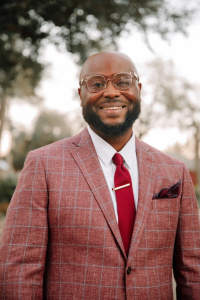Miller School Launches Diversity, Equity, and Inclusion Certificate Program
Starting this semester, medical students at the University of Miami Miller School of Medicine can opt for additional preparation for the medical field with a new Diversity, Equity, and Inclusion Certificate for Learners Program.
As the sixth most diverse medical school in the nation, the Miller School recognizes the value of producing an inclusive, representative cohort of physicians to tackle complex medical challenges and advance health equity. This self-guided certificate, offered through the Miller School’s Office of Diversity, Inclusion and Community Engagement (ODICE), will help broaden awareness and deepen understanding of critical topics.

“This certificate program is a recommendation from the Miller School’s Task Force on Racial Justice,” said Nanette Vega, Ed.D., assistant professor of medical education and assistant dean for ODICE. “We are at a critical juncture nationally and at the Miller School, where we have an opportunity to provide aspiring medical professionals with the techniques and insights they need to build mutually respectful relationships with each other and those they serve.”
Research-Based Learning
The certificate is available online and offers a robust learning method suitable for various learning styles. The program, which requires about 15 hours of engagement, is soft launching to the Class of 2026, and more than half the students in the cohort have expressed interest, Vega said.
Based on literature and timely research, the program’s first phase is a pre-assessment that allows participants to reflect on their journey and understand implicit bias. In the second phase, students will learn to be mindful of another’s experience through modules, storytelling, and videos challenging them to think differently.

“Medical students often feel unprepared to care for patients whose cultural backgrounds differ from their own,” Dr. Vega said. “Even physicians are vulnerable; we all have bias. Programs like this will begin to address health inequities and see equitable patient care move forward.”
The final phase will be a partnership in action, in which students will put to the test what they learned in a final project/presentation. While the course is independent, students will also connect with other participants and discuss what they are learning, and ODICE faculty will check in and engage throughout the course.
“We are seeing an increase in passion for these types of programs due to it being good practice for a physician to show their flexibility in working with diverse populations,” said Marquis Gatewood, Ed.D., ODICE director of programs. “Our approach to the work is not about finger-pointing but looking at ourselves so we can see others.”
Sense of Now
The program challenges students to think differently, said Tizita Wolde, a fourth-year M.D./M.P.H. student at the Miller School.

“I was pleasantly surprised to see how these modules comprehensively address the wide variety of topics included in the concept of DEI,” Wolde said. “The way the module is organized makes it very easy to open my eyes to what shapes my identity and that of those around me.”
ODICE will review how students experience the course and receive critical feedback to lay the foundation for future programs. Currently, the course is only available to medical students, but in its next phase, all learners from the Miller School will be able to access it.
Once students complete the program, they will be invited to continue the conversation by participating in other ways, such as the Intergroup Dialogue. This communications model will allow interested participants in groups of 15-20 to meet once a month in an open discussion around health equity, diversity, and inclusion in medical care.
Tags: Department of Medical Education, Dr. Nanette Vega, Miller School of Medicine, Miller School of Medicine Class of 2026, ODICE, Office of Diversity and Inclusion and Community Engagement, Task Force on Racial Justice, Tizita Wolde


